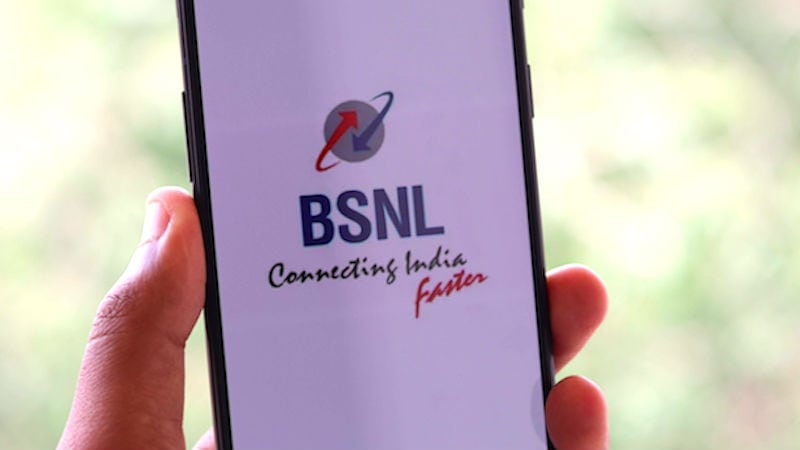
The Narendra Modi government’s decision to revive BSNL and MTNL and merge them is not only bad, but also antithetical to the logic of reforms. The Rs 70,000-crore revival package will be a waste of money.
The taxpayer (thankfully) will not have to shell out the entire amount as a substantial part of the package will involve book entries, but they will still have to bear the burden. As for resuscitation of the two telecom public sector undertakings (PSUs), that will not happen, as we shall see.
The government will allot spectrum for 4G services to BSNL and MTNL “to enable these PSUs to provide broadband and other data services. The said spectrum will be funded by the Government of India by capital infusion in these PSUs at a value of Rs 20,140 crore”, an official press release said.
Plan Detail-
The validity of the Rs 1,699 prepaid plan from BSNL has been extended to 455 days. The same plan originally comes with 365 days validity, which means BSNL customers recharging with this amount before the end of October are set to receive 90 days of additional validity.
That apart, in terms of benefits, the Rs 1,699 prepaid plan from BSNL provides 2GB per day mobile data along with 250 minutes per day of calling and 100 daily SMS messages.
The GST amount of Rs 3,674 crore to this spectrum value will also be borne by the government. “By using this spectrum allotment, BSNL and MTNL will be able to deliver 4G services, compete in the market, and provide high-speed data using their vast network, including in rural areas,” the release said. Hope springs eternal, not just in the human breast but also in government thinking.
The two telecom PSUs will also raise long-term bonds of Rs 15,000 crore for which the government will stand as the sovereign guarantor. “With the said resources, BSNL and MTNL will restructure their existing debt and also partly meet capex [capital expenditure], opex [operational expenditure] and other requirements.”
Fond hopes!
BSNL and MTNL will also offer voluntary retirement to their employees, aged 50 years and above, through an “attractive” voluntary retirement scheme (VRS), the cost of which will be borne by the government. It will be in excess of Rs 17,169 crore, the release said.
BSNL and MTNL will “monetise their assets” so as to raise resources for retiring debt, servicing of bonds, network upgrade, expansion, and meeting the operational fund requirements. You and I sell our cars, homes, and other properties, but the government monetises its assets. Such is the fear of privatisation in political circles that the sale of PSUs is no longer called by its name; it is called ‘asset monetisation.’
It would be instructive to see what happened to the previous revival packages. Disinvestment Manual (February 2003), arguably the last government document that the truth about PSUs, the government tried to revive 23 PSUs in three years up to March 2000. It spent Rs 13,058 crore in total in three years. In the period between 1992-93 and 1996-97, the money spent was Rs 20,946 crore on revival packages.
The usual methods were conversion of cash losses to interest-free loans or equity, moratorium on payment of all loans, interest holiday on outstanding government loans, write-off of outstanding non-plan loans, write-off interest on government loans, conversion of loans into equity, conversion of outstanding cash credit into working capital term-loan, concession on existing power tariff (by state governments), release of fresh loans, etc.
All these packages cost the government Rs 34,104 crore. The result: “despite huge investments shown above the government has not even been able to achieve turnaround in any of the sick companies
Yet, government after government relies on such packages. The reason is obvious. Whenever a privatisation is announced, the Left-wing intellectual and the Right-wing ideologue cry in an unusual unison that “family silver is being sold for a song to pay the grocer’s bill”.
Former disinvestment minister Arun Shourie would often retort that PSUs are not family silver but bleeding ulcers, a constant drain on the public exchequer. But today there is nobody in the government — indeed in the entire political class — to point this out.
Neither is there anybody — at least in the quarters that matter — to argue that it is impossible for PSUs to compete in an open market, as these companies are constrained by political considerations, bureaucratic apathy, and unionised workforce.
As a consequence, clichés and shibboleths continue to litter public discourse and mould economic policy. The revival package of MTNL and BSNL is the result of warped thinking and safety-first attitude of the government.